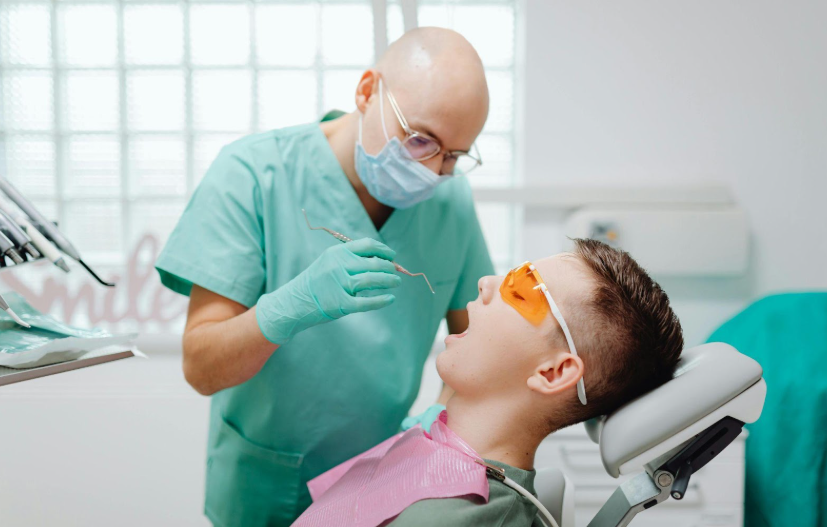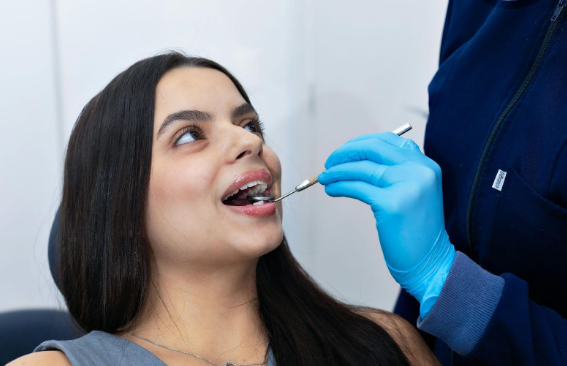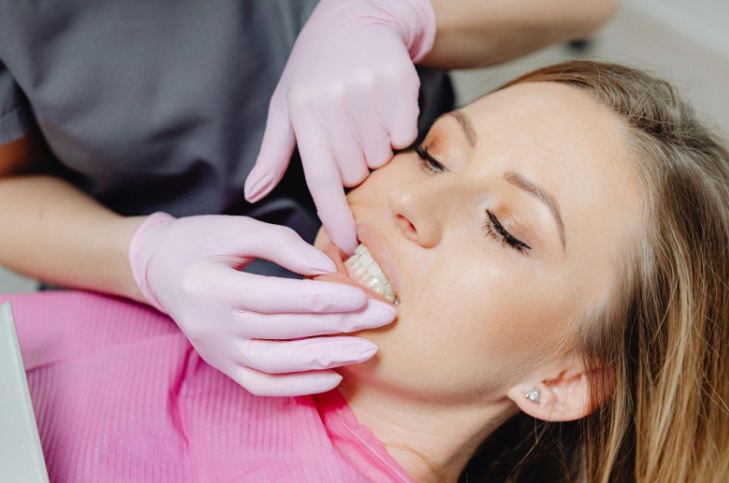The Ultimate Guide to Causes and Treatments of Bleeding Gums
The Ultimate Guide to Causes and Treatments of Bleeding Gums

Bleeding gums can be concerning, especially if it happens often. The sight of blood when brushing or flossing might worry you about your overall oral health. While it can be a sign of something serious, bleeding gums are often linked to treatable conditions. If you want to restore your gum health, the best thing to do is understand the causes and learn how to treat the issue. That’s where we come in!
Let’s explore the reasons behind bleeding gums, identify common causes, and discuss treatment options to improve your gum health.
What Causes Bleeding Gums?
Bleeding gums typically happen when the gum tissues become inflamed or irritated. This can result from several factors, from poor oral hygiene to underlying health conditions. Here are a few causes:
Poor Oral Hygiene
When plaque, a sticky film of bacteria, builds up along the gumline, it can cause the gums to become inflamed. This condition is known as gingivitis. If gingivitis is left untreated, it can progress into a more severe form of gum disease called periodontitis, resulting in tooth loss.
If plaque isn’t regularly removed by brushing and flossing, it hardens into tartar, which only a dentist can remove. Tartar buildup irritates the gums, often causing them to bleed, particularly during brushing or flossing.
Gum Disease (Gingivitis and Periodontitis)
As mentioned, gingivitis is the earliest stage of gum disease. If left untreated, it can develop into a more serious form of gum disease called periodontitis. This involves the infection of the gums, leading to deeper pockets between the teeth and gums. It can result in severe gum bleeding, recession, and even tooth loss.
Gum disease is often caused by inadequate brushing and flossing, but other factors like smoking, certain medications, or a weakened immune system can increase the risk.
Vitamin Deficiency
Vitamin C, in particular, plays a key role in maintaining healthy gums. A lack of vitamin C, known as scurvy, can lead to swollen, bleeding gums. While this is rare in developed countries, it can still occur in individuals with poor diets or those who have difficulty absorbing nutrients. A balanced diet rich in fruits and vegetables can help prevent deficiencies that contribute to gum issues.
Hormonal Changes
Hormonal changes, such as those occurring during pregnancy, menstruation, or menopause, can also affect gum health. Pregnancy, in particular, can cause a condition called pregnancy gingivitis, where the gums become swollen and bleed more easily. The increased levels of progesterone during pregnancy make the gums more sensitive to the bacteria in plaque, leading to irritation and bleeding.
Medications
Blood thinners, like warfarin, and some high blood pressure medications can make the gums more prone to bleeding. Additionally, medications that cause dry mouth can also increase the risk of gum disease since there is less saliva to wash away food particles and bacteria from the mouth.
Medical Conditions
Conditions such as diabetes, blood disorders (like leukemia or hemophilia), and certain viral infections can contribute to gum bleeding. People with uncontrolled diabetes are more prone to gum infections, as high blood sugar levels can weaken the immune system and affect gum health.
Other conditions, such as immune disorders or bleeding disorders, may also cause gums to bleed easily. If you notice frequent gum bleeding without an apparent cause, it's important to consult a healthcare provider to rule out any underlying medical issues.
How to Treat Bleeding Gums
Now that we understand the causes, it’s time to focus on how to treat bleeding gums effectively. Treatment depends on the cause, but maintaining good oral hygiene is always the first step.
Practice Good Oral Hygiene
The most effective way to prevent and treat bleeding gums is to maintain proper oral hygiene. Brushing your teeth twice a day with a soft-bristled toothbrush and fluoride toothpaste helps remove plaque from the surface of the teeth and gums. Be sure to brush along the gumline gently to avoid further irritation.
Flossing daily is just as important, as it removes plaque and food particles from between your teeth and under the gumline, areas that a toothbrush may miss. If flossing is painful, consider using a water flosser or an interdental brush, which can be gentler on the gums.
Use Antibacterial Mouthwash
Antibacterial mouthwashes can help reduce plaque and bacteria in the mouth, which is beneficial for people with gum disease. Mouthwashes containing ingredients like chlorhexidine or essential oils can help prevent gum infections and promote healing. However, mouthwash should not replace regular brushing and flossing; instead, it can be used as an additional step in your oral care routine.
Visit Your Dentist Regularly
A dentist can detect early signs of gum disease and remove tartar that has built up on your teeth. If you have gingivitis or periodontitis, your dentist may recommend scaling and root planing, which involves deep cleaning to remove bacteria from the gums and teeth.
If your bleeding gums are caused by a vitamin deficiency, your dentist may suggest adjusting your diet or taking supplements to improve your gum health.
Treat Underlying Conditions
If an underlying health condition, such as diabetes or a blood disorder, is causing your bleeding gums, it is important to manage that condition. Keeping blood sugar levels under control if you have diabetes can reduce the risk of gum infections. If medications contribute to gum bleeding, speak with your doctor to see if alternatives are available.
Quit Smoking
Smoking is a major risk factor for gum disease and can contribute to bleeding gums. Quitting smoking helps improve overall gum health and reduces the risk of developing more serious dental issues. If you struggle with quitting, seek professional help or support to increase your chances of success.
If you're dealing with bleeding gums, don’t wait until it becomes a bigger issue! At
Patriot Family Dental, we help you find the best treatment options and get your gum health back on track.
Schedule your appointment today to receive a personalized care plan and prevent further complications. Your journey to a healthy, confident smile starts here!











